Welcome to the Amira-Avizo Software Use Case Gallery
Below you will find a collection of use cases of our 3D data visualization and analysis software. These use cases include scientific publications, articles, papers, posters, presentations or even videos that show how Amira-Avizo Software is used to address various scientific and industrial research topics.
Use the Domain selector to filter by main application area, and use the Search box to enter keywords related to specific topics you are interested in.
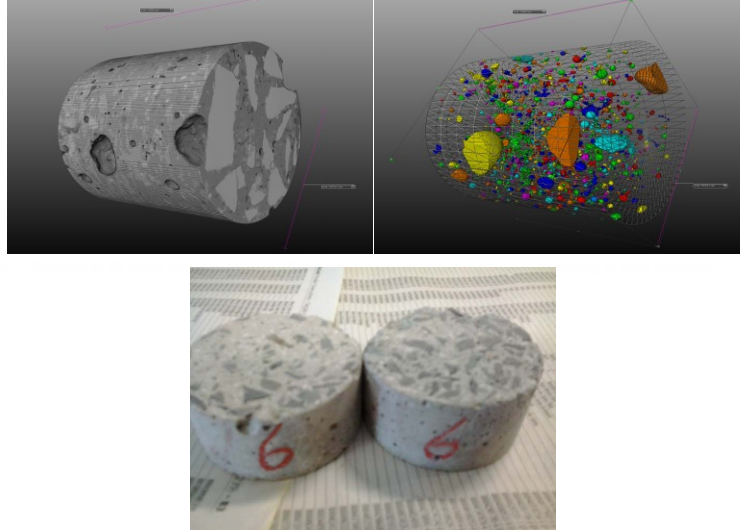
The thermal conductivity values of ordinary concrete can be adjusted to those prescribed in constructions by entraining air bubbles to reduce the density of concrete in order to achieve good thermal insulation. This paper concerns the analysis of air bubble distribution in concrete obtained by micro X-ray µCT (computed tomography) and correlates it with its thermal conductivity (k). (…) The results show that air-entrainment leads to viable use of this material as sealer to achieve good... Read more
A. P. Peruzzi, J. A. Rossignolo and H. Kahn
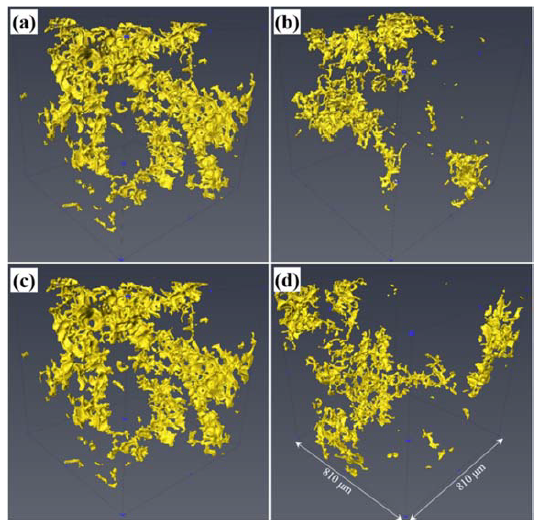
The effect of ultrasonic melting processing on three-dimensional architecture of intermetallic phases and pores in two multicomponent cast Al-5.0Cu 0.6Mn-0.5 Fe alloys is characterized using conventional microscopy and synchrotron X-ray microtomography. (…) The results show that ultrasonic melt processing (USP) significantly reduce the volume fraction, grain size, interconnectivity, and equivalent diameter of the intermetallic phases in both alloys. The volume fraction of pores in both ... Read more
Yuliang Zhao, Dongfu Song, Bo Lin, Chun Zhang, Donghai Zheng, Zhi Wang, Weiwen Zhang
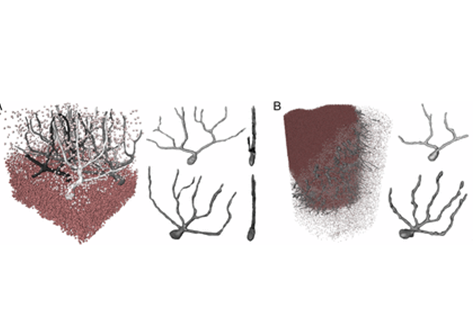
Three-dimensional virtual histology of human cerebellum by X-ray phase-contrast tomography
To quantitatively evaluate brain tissue and its corresponding function, knowledge of the 3D cellular distribution is essential. The gold standard to obtain this information is histology, a destructive and labor-intensive technique where the specimen is sliced and examined under a light microscope, providing 3D information at nonisotropic resolution. To overcome the limitations of conventional histology, we use phase-contrast X-ray tomography with optimized optics, reconstruction, and image an... Read more
Mareike Töpperwien, Franziska van der Meer, Christine Stadelmann, and Tim Salditt
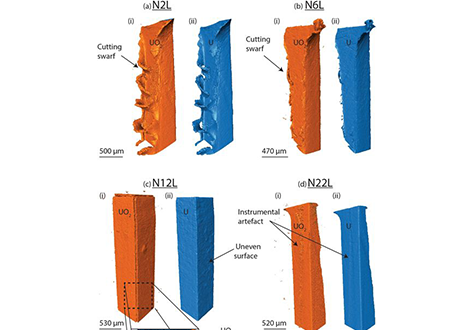
In-situ, time resolved monitoring of uranium in BFS:OPC grout. Part 2: Corrosion in water
To reflect potential conditions in a geological disposal facility, uranium was encapsulated in grout and submersed in de-ionised water for time periods between 2–47 weeks. Synchrotron X-ray Powder Diffraction and X-ray Tomography were used to identify the dominant corrosion products and measure their dimensions. Uranium dioxide was observed as the dominant corrosion product and time dependent thickness measurements were used to calculate oxidation rates. The effectiveness of physical and ch... Read more
C. A. Stitt, C. Paraskevoulakos, A. Banos, N. J. Harker, K. R. Hallam, H. Pullin, A. Davenport, S. Street, T. B. Scott
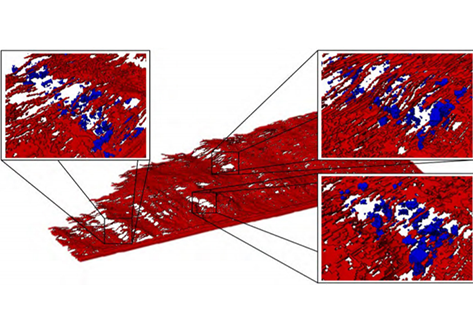
Understanding the near-threshold crack growth behavior in an aluminum alloy by x-ray tomography
The near-threshold behavior of long cracks is evaluated using pre-cracked flat dogbone specimens of a commercial aluminum alloy in two heat treatment states. Once the threshold was known, the crack initially introduced by cyclic compression was propagated under load control with approximately
constant range of the stress intensity factor at values close to the threshold values. The 3D morphology of the crack and the spatial distribution of the primary precipitates obtained by µ-CT were... Read more
Marcel Wicke, Angelika Brueckner-Foit, Tina Kirsten, Martina Zimmermann, Fatih Buelbuel, Hans-Juergen Christ
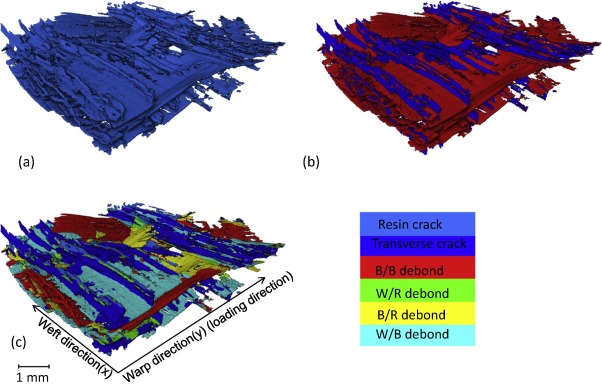
Three dimensional (3D) composites were proposed over 40 years ago in an attempt to overcome the shortcomings of 2D laminates, by incorporating fibres into the through-thickness direction. 3D weaving offer significant manufacturing benefits as well as creating versatile textiles having a range of 3D architectures.
The development of fatigue damage in a glass fibre modified layer-to-layer three dimensional (3D) woven composite has been followed by time-lapse X-ray computed tomograp... Read more
B. Yu, R. Blanc, C. Soutis, P.J. Withers
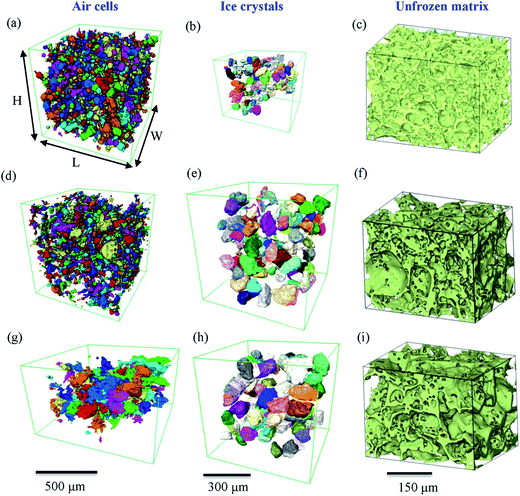
The microstructure of food affects our sensorial perception, its attractiveness, and the manufactured product’s shelf-life.
Microstructural evolution in soft matter directly influences not only the material’s mechanical and functional properties, but also our perception of that material’s taste. Using synchrotron X-ray tomography and cryo-SEM we investigated the time–temperature evolution of ice cream’s microstructure. This was enabled via three adv... Read more
Enyu Guo, Guang Zeng, Daniil Kazantsev, Peter Rockett, Julian Bent, Mark Kirkland, Gerard Van Dalen, David S. Eastwood, David StJohn and Peter D. Lee
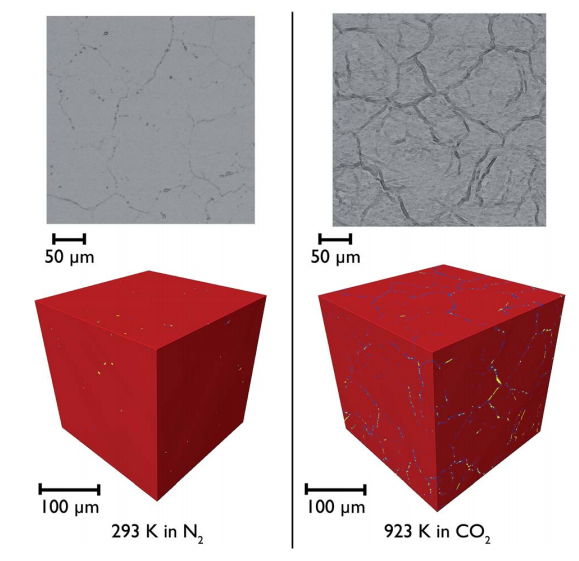
In situ studies of materials for high temperature CO2 capture and storage
Carbon capture and storage (CCS) offers a possible solution to curb the CO2 emissions from stationary sources in the coming decades, considering the delays in shifting energy generation to carbon neutral sources such as wind, solar and biomass.
The most mature technology for post-combustion capture uses a liquid sorbent, amine scrubbing. However, with the existing technology, a large amount of heat is required for the regeneration of the liquid sorbent, which... Read more
Matthew T. Dunstan, Serena A. Maugeri, Wen Liu, Matthew G. Tucker, Oluwadamilola O. Taiwo, Belen Gonzalez, Phoebe K. Allan, Michael W. Gaultois, Paul R. Shearing, David A. Keen, Anthony E. Phillips, Martin T. Dove, Stuart A. Scott, John S. Dennish and Clare P. Grey
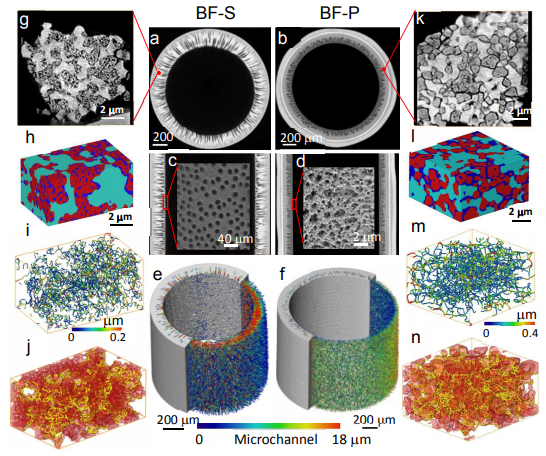
Mass transport can significantly limit the rate of reaction and lead to concentration polarization in electrochemical devices, especially under the conditions of high operating current density.
In this study we investigate hierarchically structured micro-tubular solid
oxide fuel cells (MT-SOFC) fabricated by phase inversion technique and quantitatively assess the mass transport and electrochemical performance improvement compared to a conventional tubular SOFC. We present pioneer... Read more
Xuekun Lu, Tao Li, Antonio Bertei, Jason I S Cho , Thomas M.M. Heenan , Rabuni Mohamad, Kang Li, Dan JL Brett, Paul R Shearing
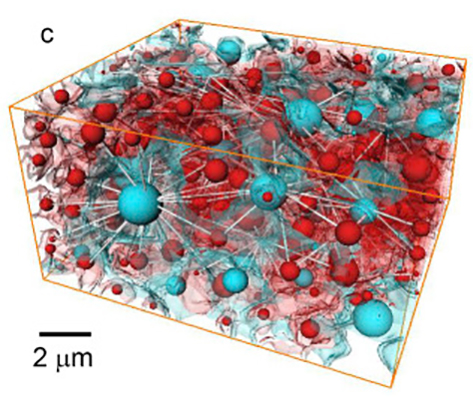
Correlation between triple phase boundary and the microstructure of Solid Oxide Fuel Cell anodes
This study aims to correlate the active triple phase boundaries (TPBs) to the variation of as-prepared anode microstructures and Ni densifications based on the reconstructed 3D volume of an SOFC anode, providing a point of comparison with theoretical studies that reveal the relationship of TPBs and the material microstructure using randomly packed spheres models.
Read more
Xuekun Lu, Thomas M.M. Heenan, Josh J. Bailey, Tao Li, Kang Li, Daniel J.L. Brett, Paul R. Shearing, Electrochemical Innovation Lab, Department of Chemical Engineering, University College London, London
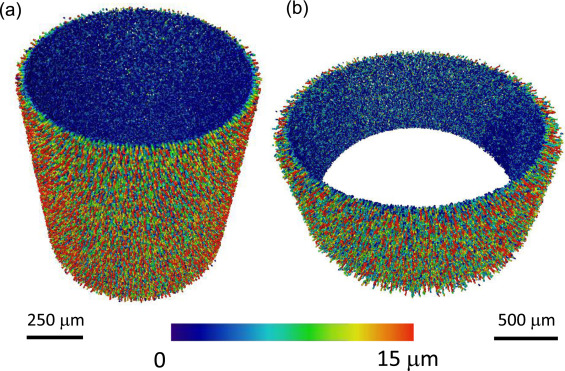
In this study, a series of alumina hollow fibers have been prepared with varied polymer binder (polyethersulfone, PESf) concentration and new polymer-based internal coagulant (aqueous solution of polyvinyl alcohol, PVA). For the first time, the micro-channels were characterized in 3D using X-ray CT to determine micro-channel densities and diameters in the radial direction, as well as the 2D measurement of the pore size in the sponge-like layer.
Read more
Tao Li, Xuekun Lu, Bo Wang, Zhentao Wu, Kang Li, Dan J.L. Brett, Paul R. Shearing
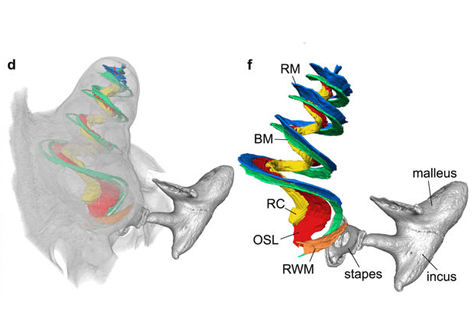
Propagation-based phase-contrast x-ray tomography of cochlea using a compact synchrotron source
We demonstrate that phase retrieval and tomographic imaging at the organ level of small animals can be advantageously carried out using the monochromatic radiation emitted by a compact x-ray light source, without further optical elements apart from source and detector. This approach allows to carry out microtomography experiments which – due to the large performance gap with respect to conventional laboratory instruments – so far were usually limited to synchrotron sources. We dem... Read more
Mareike Töpperwien, Regine Gradl, Daniel Keppeler, Malte Vassholz, Alexander Meyer, Roland Hessler, Klaus Achterhold, Bernhard Gleich, Martin Dierolf, Franz Pfeiffer, Tobias Moser & Tim Salditt